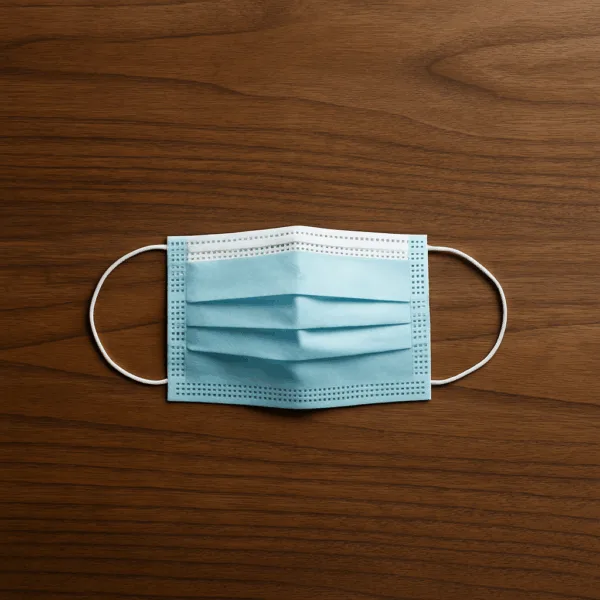COVID-19 claims reinstated but still face uphill task (Edwards and others v 2 Sisters Ltd Food Group Ltd)

Claims by factory workers for contracting COVID-19 during the pandemic have been reinstated as a result of a successful appeal of the decision to grant summary judgment to the defendant. Although recognising that the claimants faced ‘an uphill task’ to succeed on the claims, the appeal was allowed. The court held that the judge misunderstood the case on causation that the claimants put forward and fell into the well-known trap of conducting a mini-trial of the issues. This case can help practitioners decide whether to launch an application for summary judgment and how much evidence is required to satisfy the test in CPR 24.3(a).
Edwards and others v 2 Sisters Food Group Ltd [2025] EWHC 1312 (KB)
What are the practical implications of this case?
It is always a fine line to tread on a summary judgment application between forensically analysing the case and conducting a mini-trial. The court re-emphasised that the CPR 24 summary judgment jurisdiction was restricted to those cases where it could be readily ascertained that the requirements of CPR 24.3 were fulfilled. The very nature of a summary judgment application allows disposal of issues, cases or defences without needing to delve into disclosure or witness statements as a trial would. Although it is tempting to point to lack of evidence or try to fill evidential holes at an application for summary judgment, this can lead a judge into error by conducting a mini-trial. It is not required for the existing evidence itself to show an arguable case.
The court also has to consider the impact of potential evidence. The court gave guidance as how to address the approach in Okpabi v Royal Dutch Shell PLC [2021] UKSC 3 to draw a distinction between new evidence that may become available and evidence that is likely to add to or alter the evidence available at the time of the summary judgment application which has the ability to found or at least point towards an arguable case.
What was the background?
The claimants were all employed at the defendant’s chicken processing factory in Llangefni. In June 2020 there was an outbreak of COVID-19 at the factory. The claimants claimed that they contracted COVID-19 because of that outbreak. The claim alleged that the defendant was negligent, in breach of statutory duty and contract. Proceedings were served with general practitioner (GP) reports which did not address causation. The claimant’s intention was to obtain a report from an expert Occupational Hygienist to address breaches of duty and causation but this had not yet been obtained.
His Honour Judge Owens granted summary judgment in favour of the defendant on the basis that there were no reasonable grounds for bringing the claims. COVID-19 was an ‘indivisible injury’ as far as was known, and the claimants would need to extend the Fairchild doctrine of causation to prove that any breach of the defendant’s duty caused or materially contributed to the injury. The judge criticised the claimants for not yet obtaining the expert evidence necessary to establish causation. The claimants appealed.
What did the court decide?
The appeal was allowed. Summary judgment was a somewhat draconian process. Although an application for summary judgment was bound to involve some degree of forensic analysis, the courts should avoid conducting a mini-trial of the case—Swain v Hillman [2001] 1 All ER 91. The court should be cautious if there were factual issues, or if reasonable grounds existed for believing that a fuller investigation into the facts would add to or alter the evidence available to the trial judge—Doncaster Pharmaceuticals Group Ltd v The Bolton Pharmaceutical Company 100 Ltd [2006] EWCA Civ 661.
The judge had misunderstood the appellant’s case on causation. By focusing on the unlikely Fairchild extension, she had failed to consider the appellant’s primary case on causation which was that the claimants could succeed on the ‘but for’ test. For the purposes of summary judgment, the facts the claimants alleged had to be accepted and could establish ‘but for’ causation. Further, the judge fell into error by conducting a mini-trial without the benefit of evidence, including expert evidence, that would have been available. It was not problematic to await the outcome of disclosure before instructing an expert because disclosure would be relevant to the expert’s report. Likewise, the claimants did not need to have adduced witness evidence about their behaviour for a summary judgment application, because to do this would encourage the use of summary judgment to conduct a mini-trial. Instead, this was evidence that may materially add to or alter the evidence relevant to whether the claims have a real prospect of success—Okpabi v Royal Dutch Shell PLC [2021] UKSC 3.
Case details
- Court: King’s Bench Division (Cardiff District Registry)
- Judge: Hon Sir Peter Lane
- Date of judgment: 28 May 2025
Article by Jasmine Murphy, originally published by LexisNexis here.
Disclaimer
This content is provided free of charge for information purposes only. It does not constitute legal advice and should not be relied on as such. No responsibility for the accuracy and/or correctness of the information and commentary set out in the article, or for any consequences of relying on it, is assumed or accepted by any member of Chambers or by Chambers as a whole.
Contact
Please note that we do not give legal advice on individual cases which may relate to this content other than by way of formal instruction of a member of Gatehouse Chambers. However, if you have any other queries about this content please contact:


